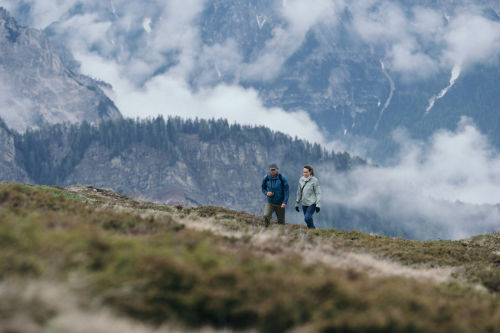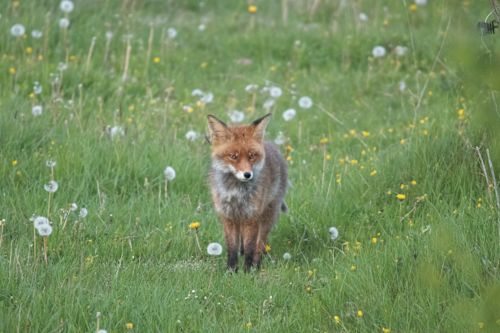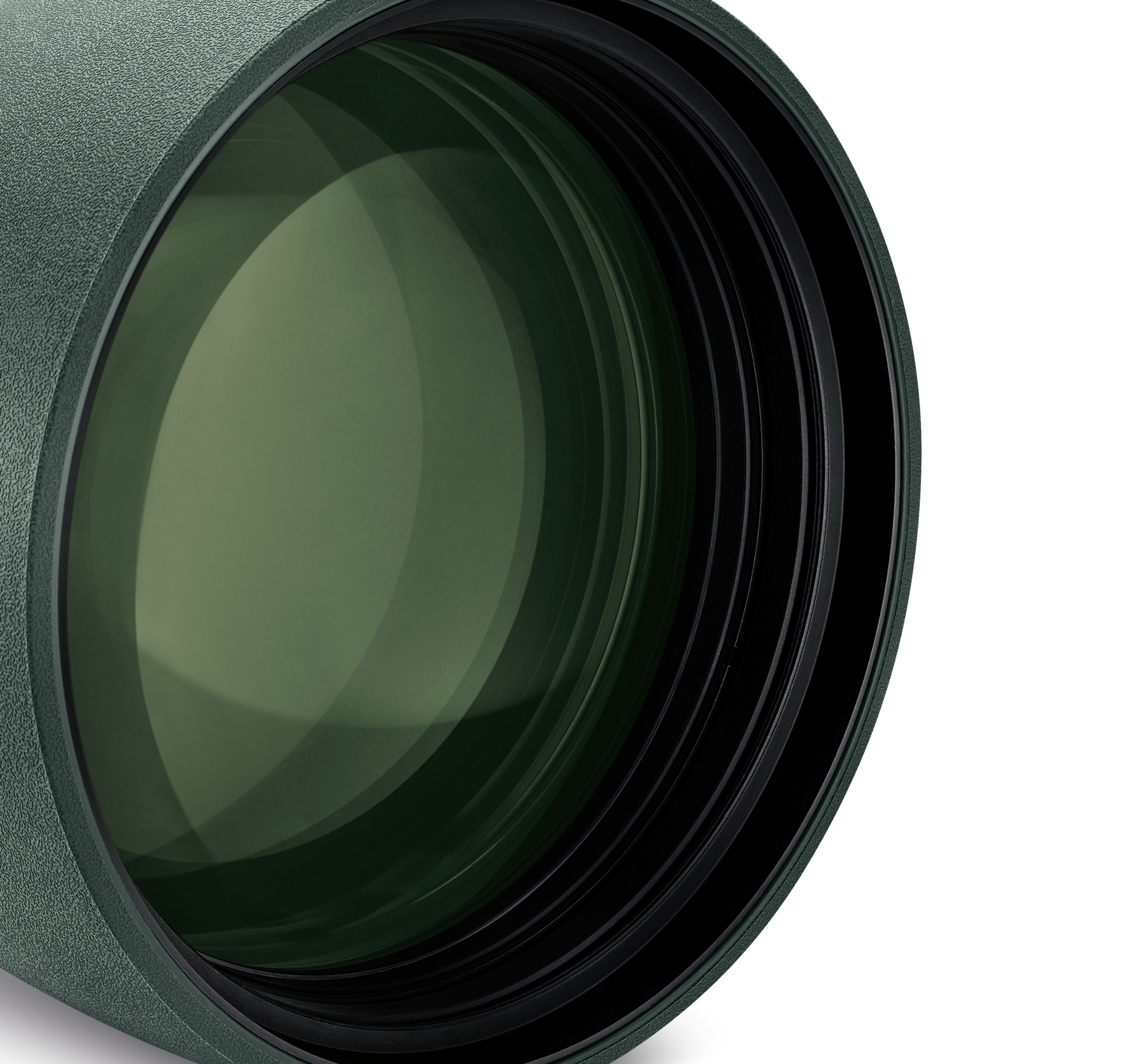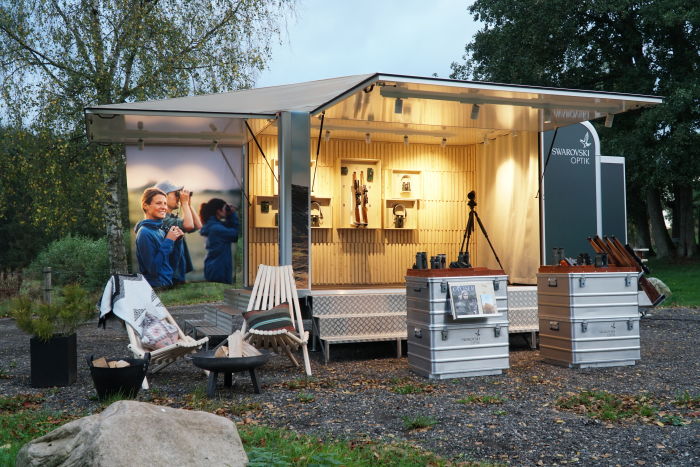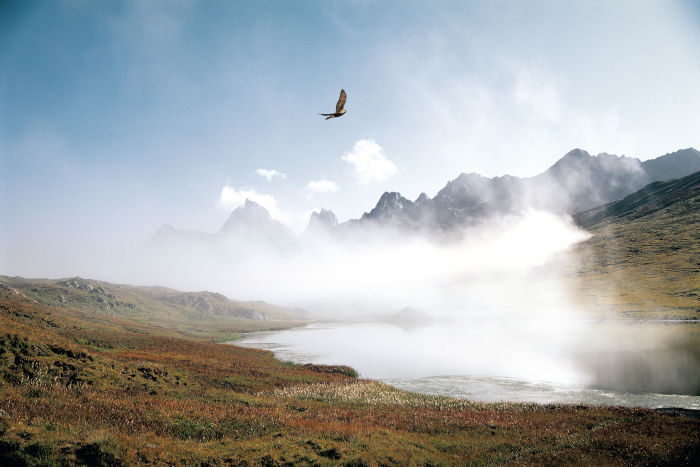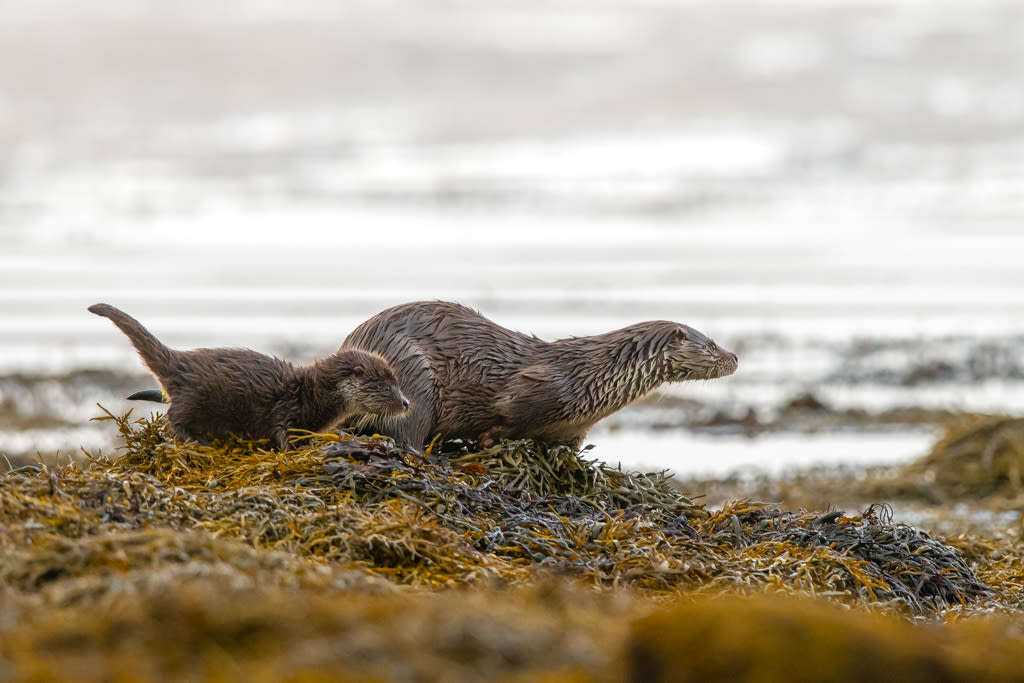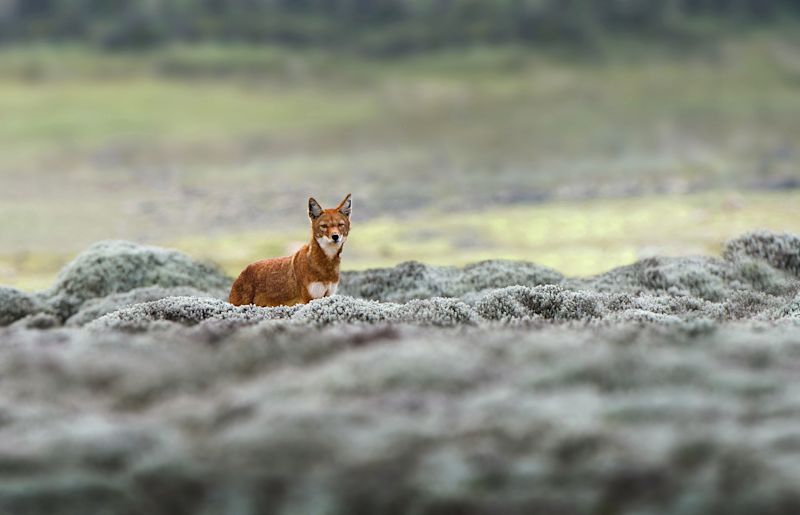The Shetland Islands are home to the highest known density of the Eurasian Otter. With this thriving population, largely diurnal hunting preference and the coastal environment, our islands are arguably the best place to study them. As my favorite animal, I consider myself truly blessed to spend most of my working life with them.
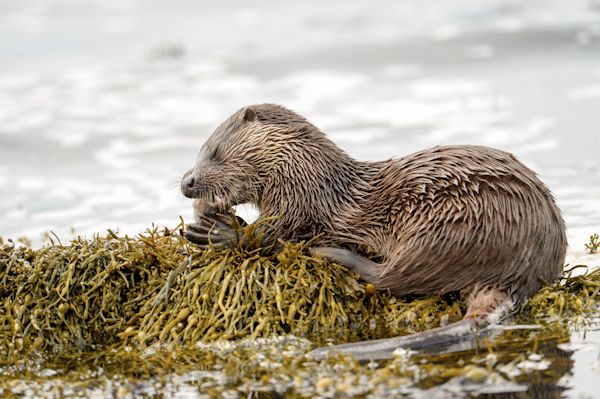
Fascinated by otters
since childhood
My fascination began over 30 years ago as a child, exploring the shores close to our family home. I soon began to learn their behavior, routines and where to find them, as well as how to watch and track these shy and elusive creatures. My professional roles working on otters in Shetland ranges from wildlife tours and photographic assignments over ecological consultancy to working as a natural history media consultant and guide for wildlife filming productions.
Up to Date Knowledge
To do the work my knowledge needs to be up to date. For this end, it is necessary to monitor their sites, spending many hours on the coast where at each location I have intimate understanding of the individuals that live there. Generally speaking, otters’ routines follow the tides. So, with experience, being out at the right place and right time isn’t so difficult. However, spotting them can be another matter! Their brown colored pelt perfectly blends in with the lush shores of seaweed that blanket the coastal environment.
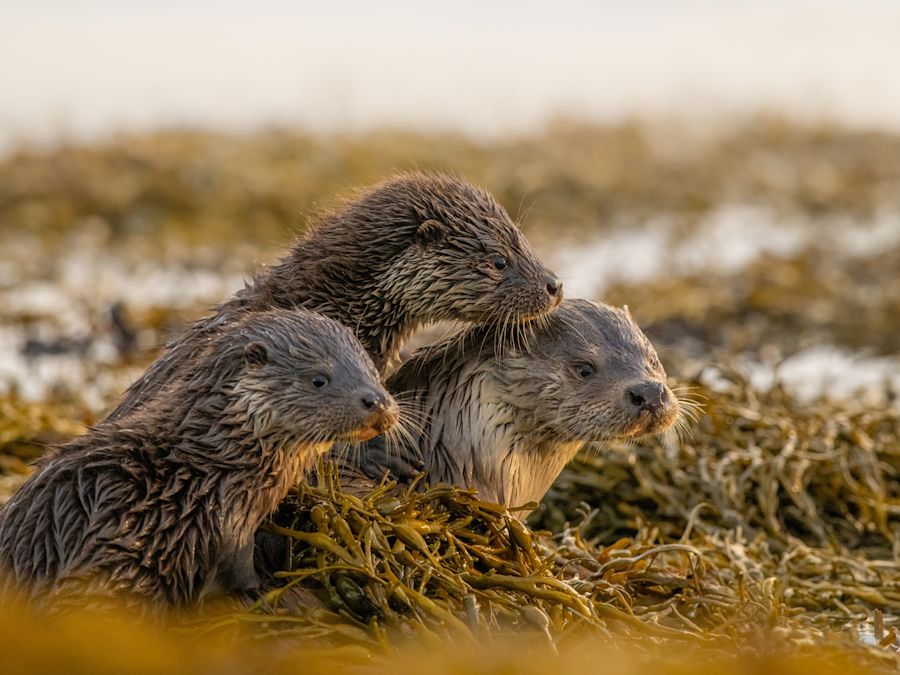
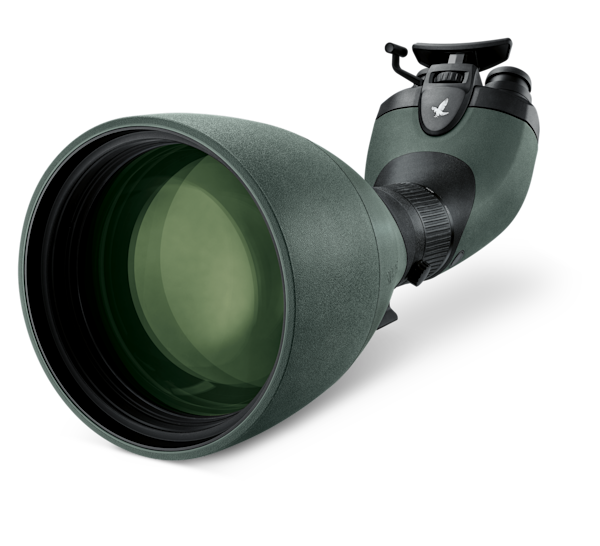
Key to successful and unintrusive observation is to spot them, not them spot you. Scanning shorelines, often at considerable range is imperative. Positioned well, I can spot the very subtlest detail along the shore with the 115-mm objective module attached to my spotting scope.
filmed by Richard Shucksmith
It might be a movement among the kelp, or the texture of their fur, huddled together as they sleep motionless on the bladderwrack seaweed.
Brydon Thomason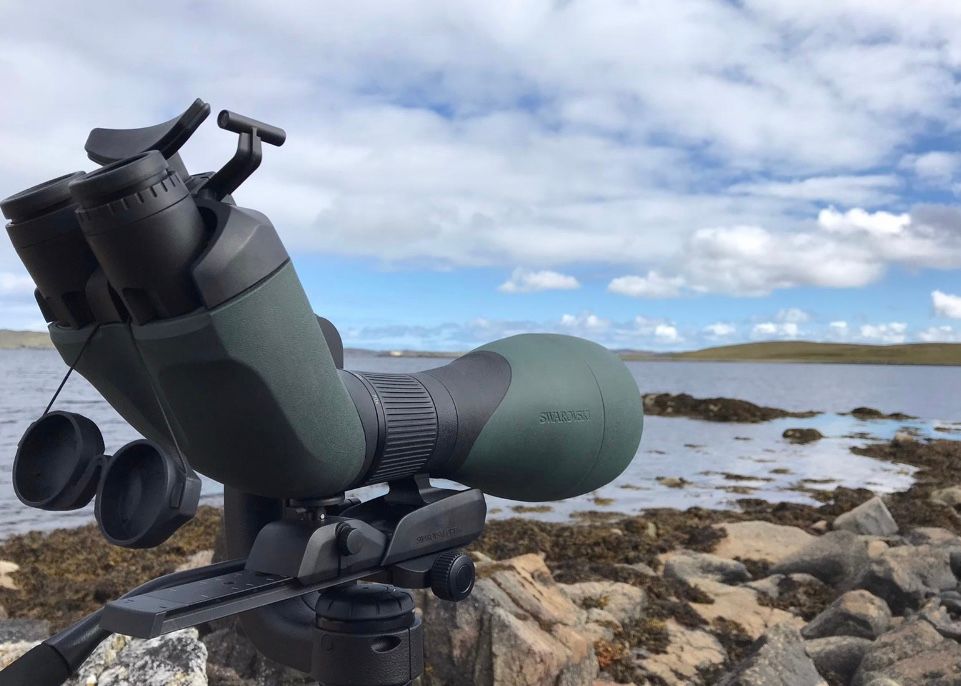
THANKS TO THE BTX
I often need to spend long periods watching their holt (or place of rest), to see what time they leave to begin their daily routine, with the BTX prolonged viewing is made all the easier and more comfortable, both eyes relaxed and watching and waiting, not wanting to miss the moment.
Join me on a day in the field and get to know a very special family of Shetland’s otters.
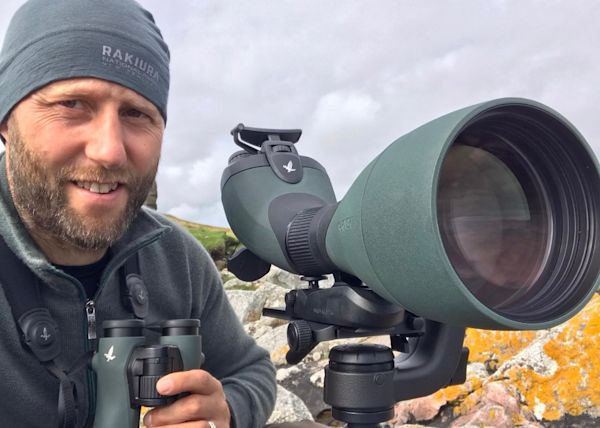
About the author:
Brydon Thomason
is naturalist consultant, photographer, guide and birder. With a lifetime of knowledge of his Shetland Islands homeland he owns and operates Shetland Nature, a wildlife tour company that celebrates the archipelagos rich natural and cultural heritage. He has worked as a media consultant, and appeared on numerous television productions about the islands wildlife, particularly the islands otters, his life’s passion. He co-authored the acclaimed book 'Otters in Shetland- the tale of the draatsi' sharing the lives, ecology and behaviour of one of Europe’s most charismatic mammals. He also works as an ornithological and ecological surveyor and consultant.

